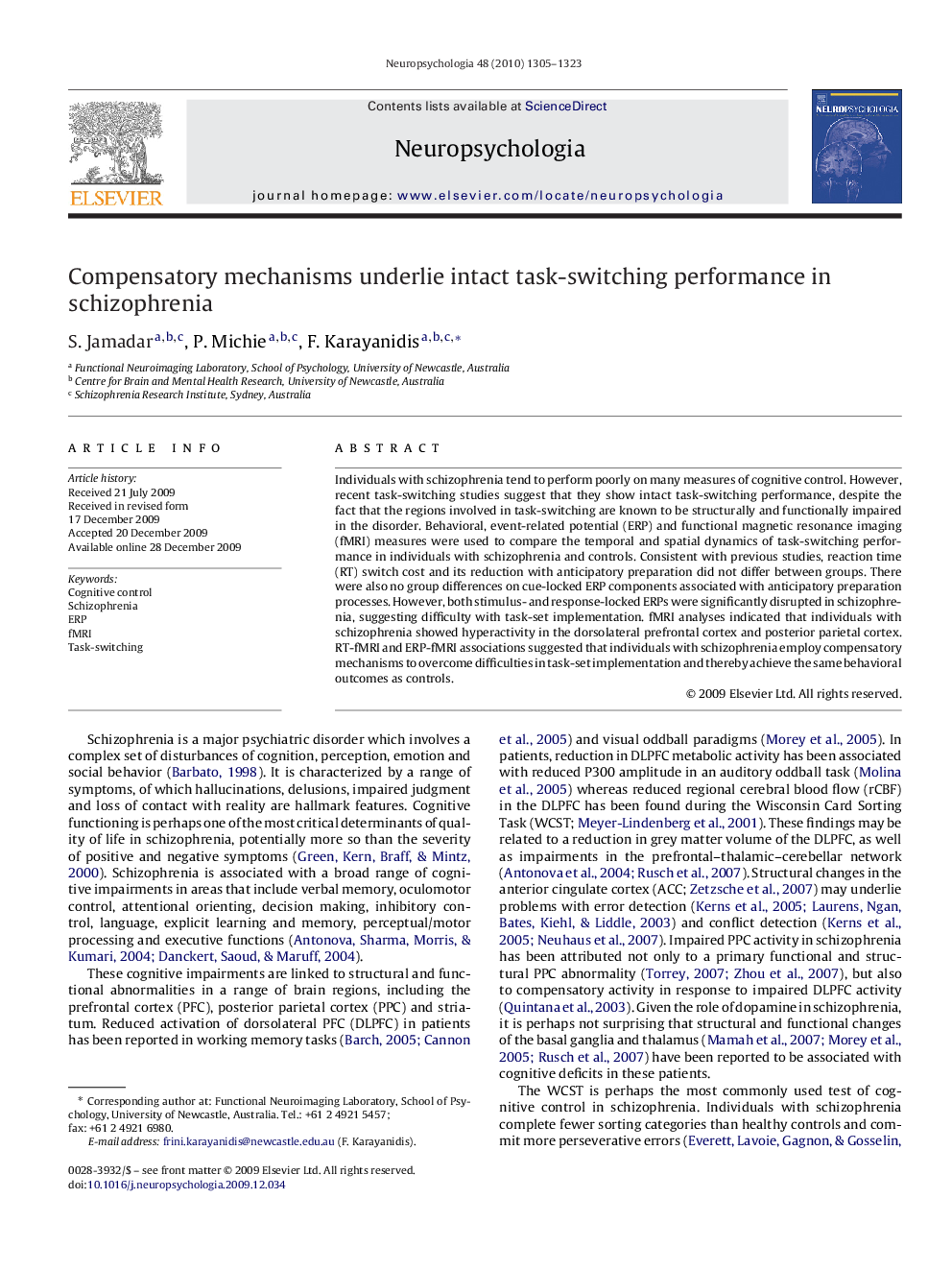| Article ID | Journal | Published Year | Pages | File Type |
|---|---|---|---|---|
| 10466120 | Neuropsychologia | 2010 | 19 Pages |
Abstract
Individuals with schizophrenia tend to perform poorly on many measures of cognitive control. However, recent task-switching studies suggest that they show intact task-switching performance, despite the fact that the regions involved in task-switching are known to be structurally and functionally impaired in the disorder. Behavioral, event-related potential (ERP) and functional magnetic resonance imaging (fMRI) measures were used to compare the temporal and spatial dynamics of task-switching performance in individuals with schizophrenia and controls. Consistent with previous studies, reaction time (RT) switch cost and its reduction with anticipatory preparation did not differ between groups. There were also no group differences on cue-locked ERP components associated with anticipatory preparation processes. However, both stimulus- and response-locked ERPs were significantly disrupted in schizophrenia, suggesting difficulty with task-set implementation. fMRI analyses indicated that individuals with schizophrenia showed hyperactivity in the dorsolateral prefrontal cortex and posterior parietal cortex. RT-fMRI and ERP-fMRI associations suggested that individuals with schizophrenia employ compensatory mechanisms to overcome difficulties in task-set implementation and thereby achieve the same behavioral outcomes as controls.
Related Topics
Life Sciences
Neuroscience
Behavioral Neuroscience
Authors
S. Jamadar, P. Michie, F. Karayanidis,
